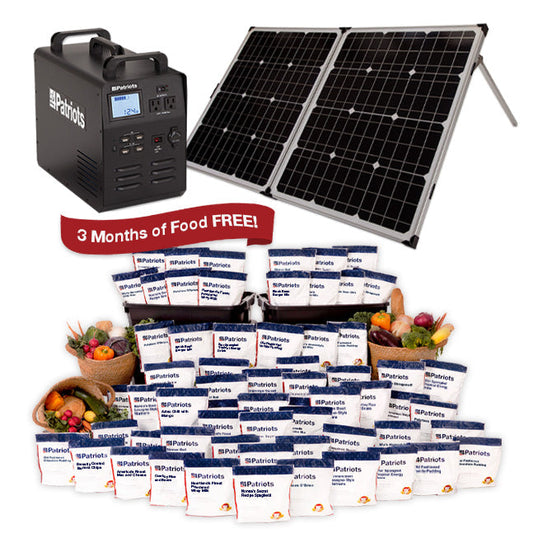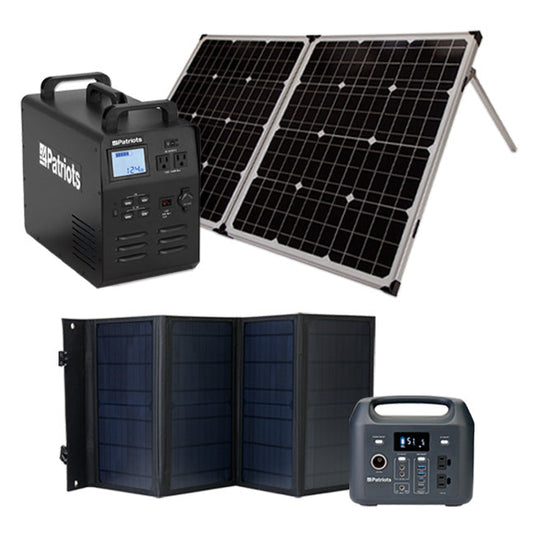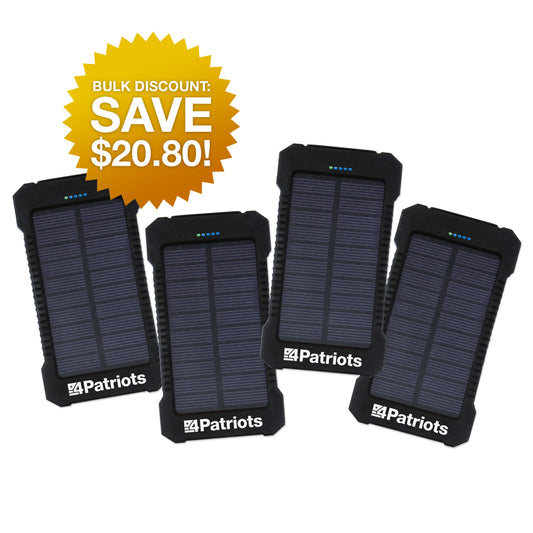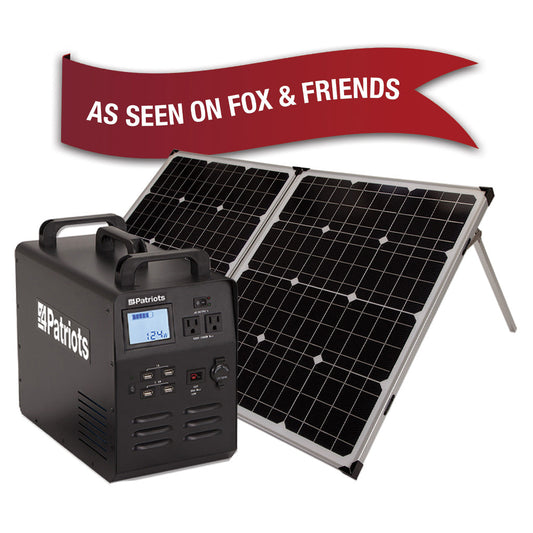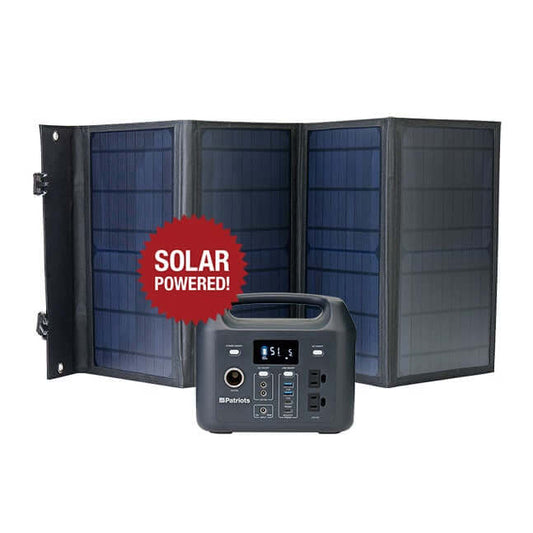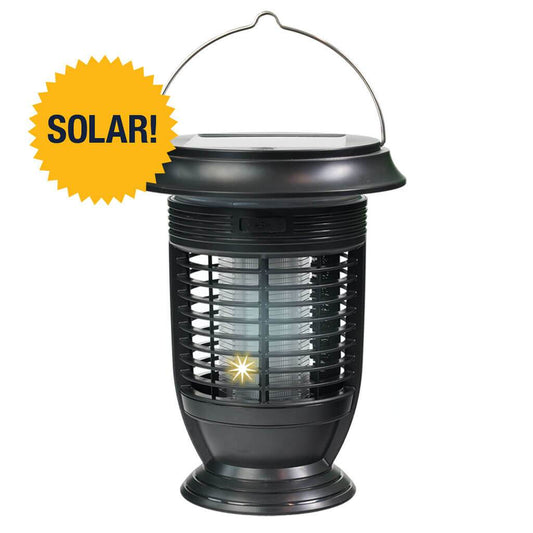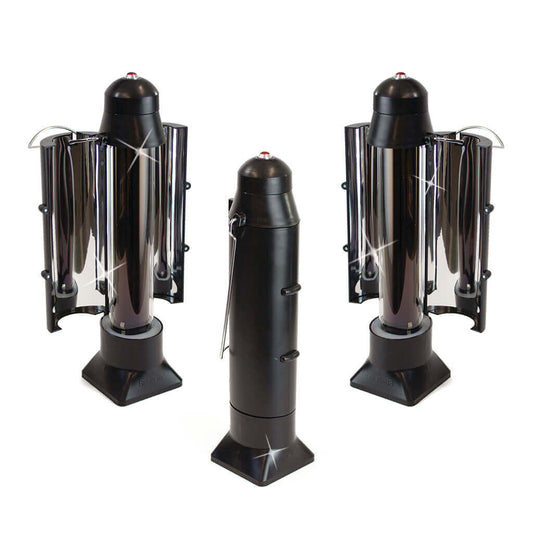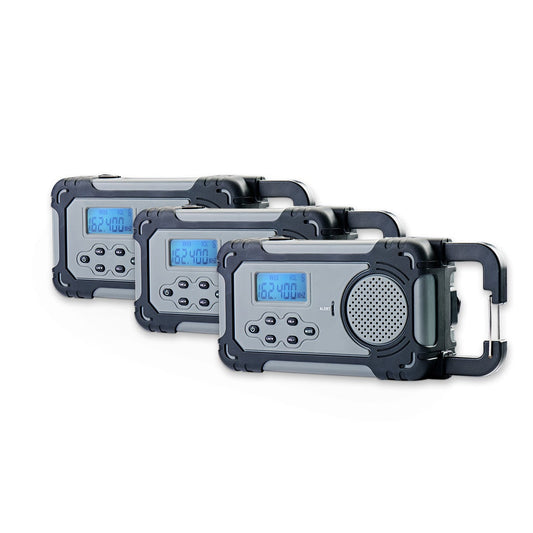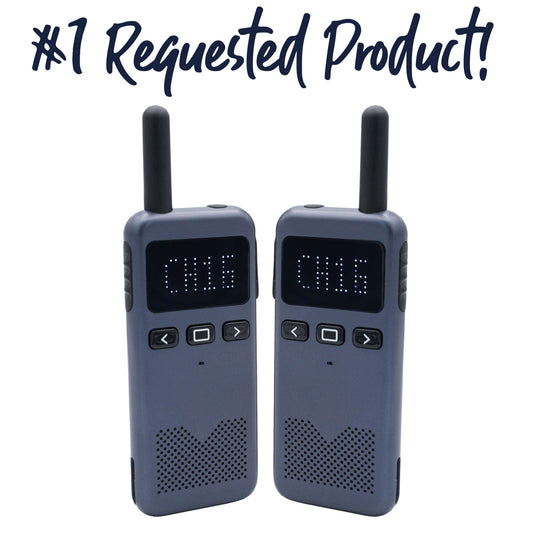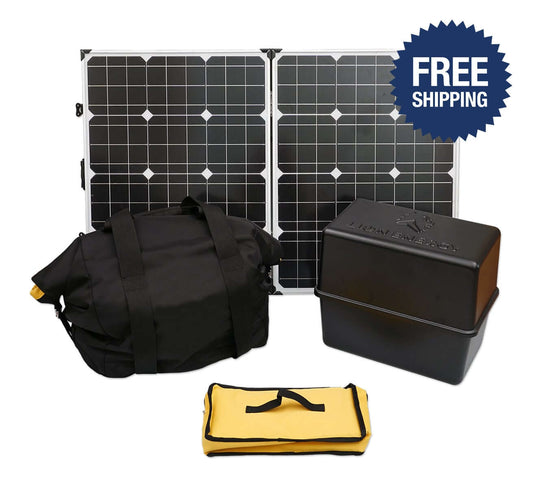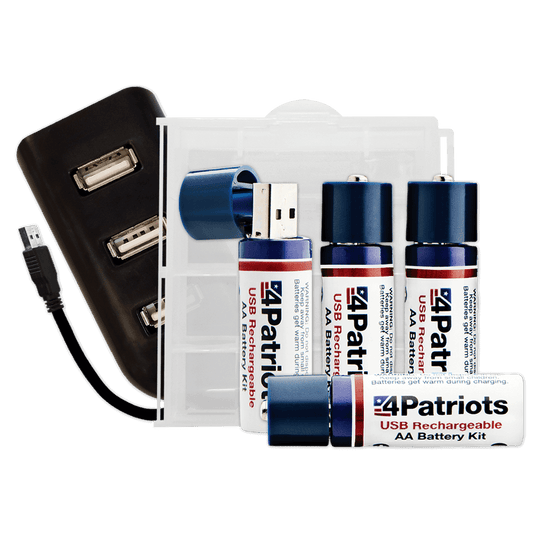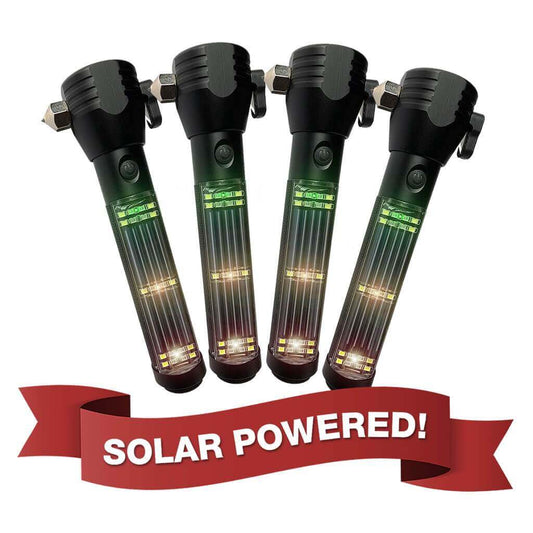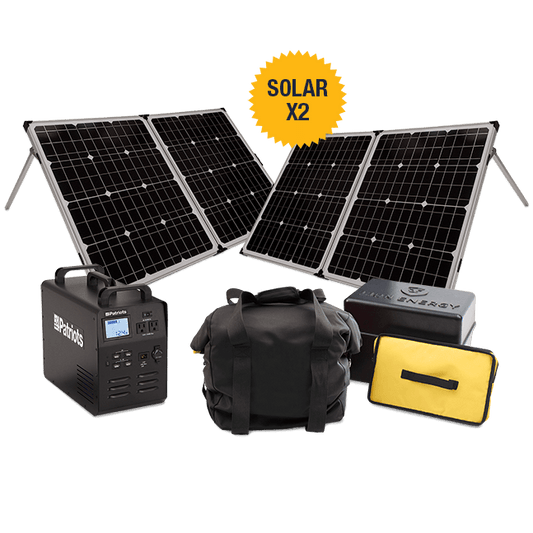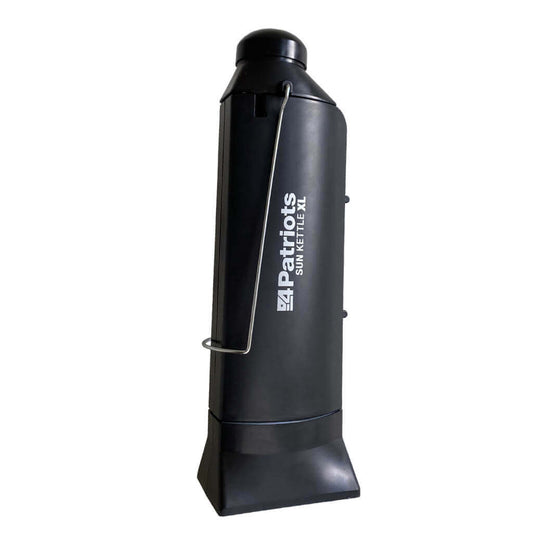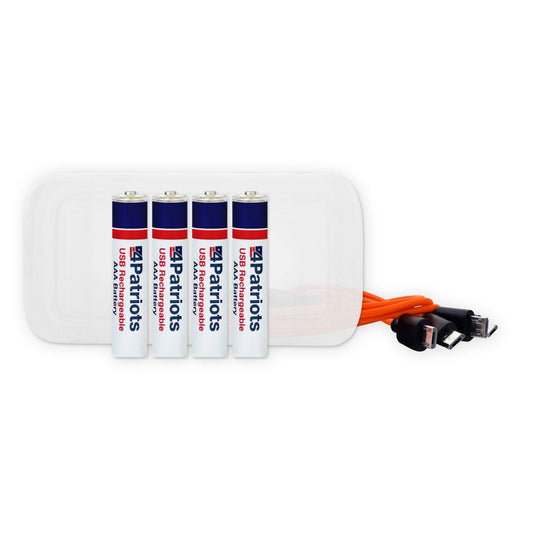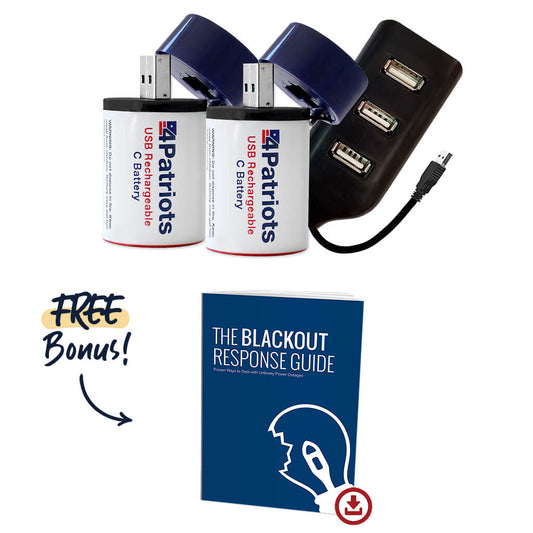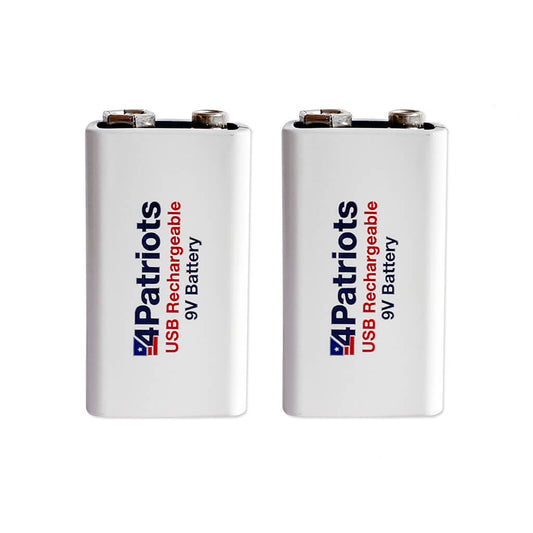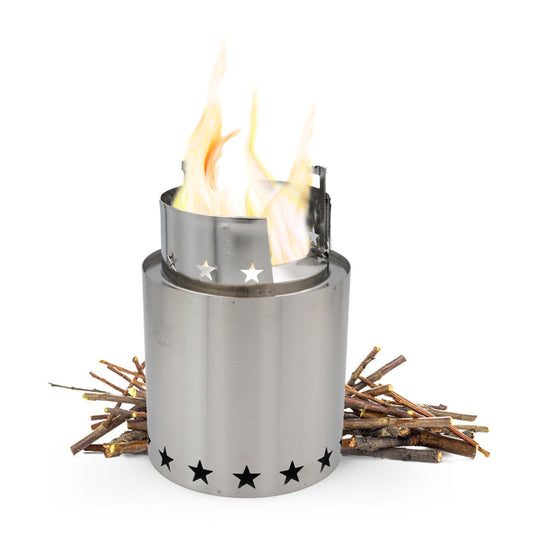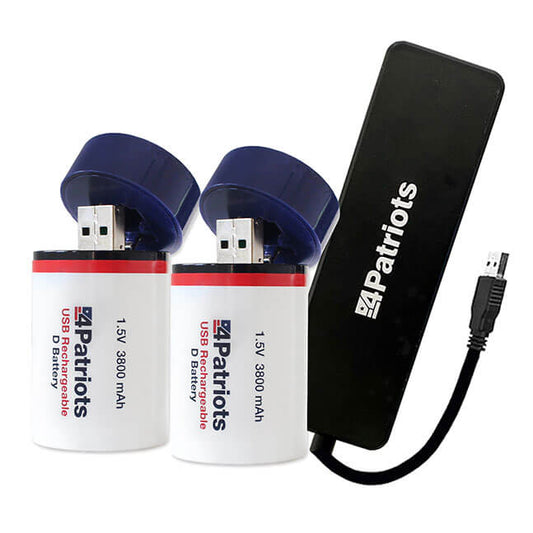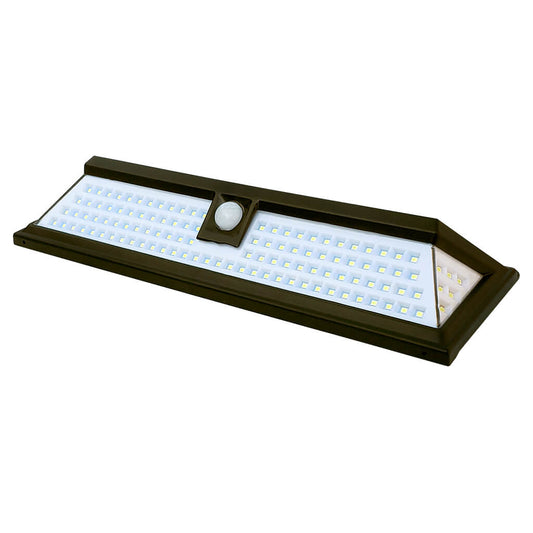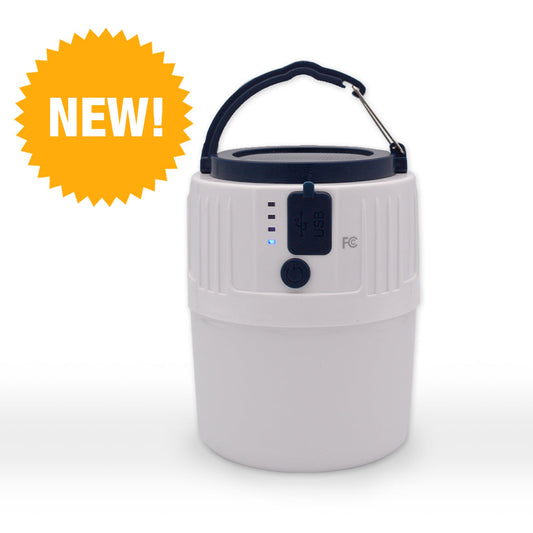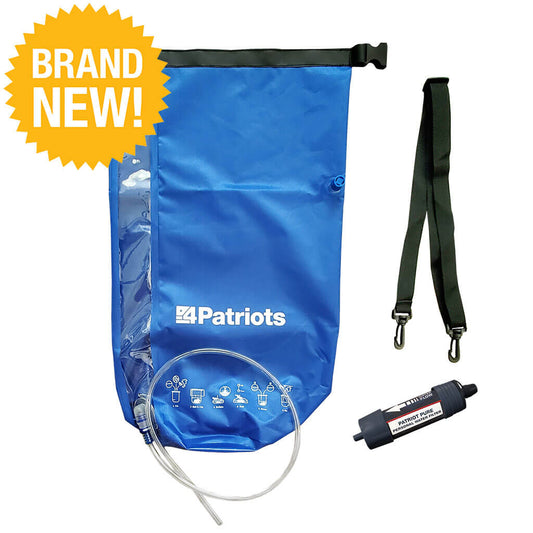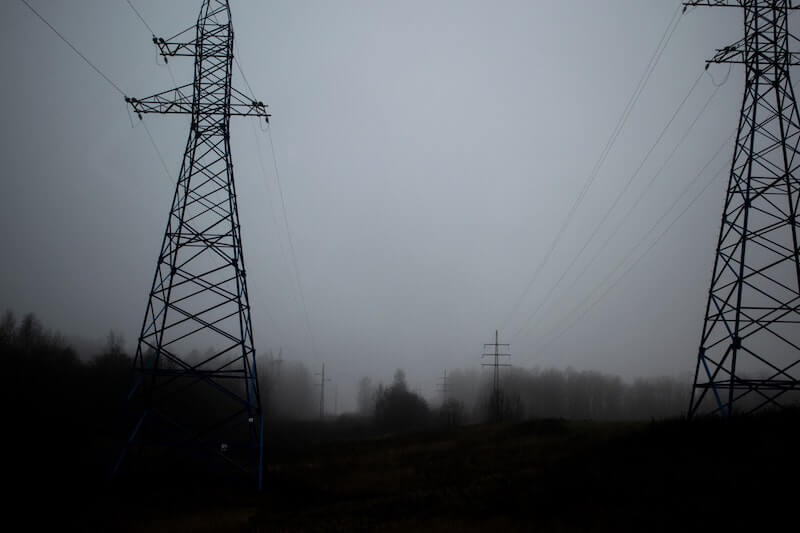
How Best to Prepare for a Power Outage

Power outages can be scary, and they can cause significant damages. Most commonly, they happen during big storms when power lines are impacted. They can also happen more randomly if there is any issue with the power lines or power grid in your area. Due to a wide variety of issues that can occur with a blackout, it’s hard to say just how long you might be without power, even with the relatively quick outage updates of today.
If you live in a place where hurricanes occur or high winds are common, it could be days or even weeks before your power is restored, as power companies can get overwhelmed, and downed power lines can take a while to repair. Preparation for outages is even more important during the current pandemic, as you may be hesitant to go out to public spaces or stay at a friend's, as you normally might during an outage.
Thankfully, there are a few safety measures you can take to be prepared and decrease the amount of stress you experience during a power outage emergency. If you follow these steps, you should have nothing to worry about! The key is just to be prepared for any scenario. Here is what you should do to prepare for a power outage:
- Unplug appliances and disconnect electronics
- Prepare an emergency food supply and survival kit
- Have a generator on hand
- Have an alternative light source (flashlights, lantern, etc.)
Additionally, you should have a plan for medical-related issues, such as machinery that needs electricity and medication that needs refrigeration. You should keep a power cell to charge your mobile phone, or a solar-powered phone charging power cell. This charging block will never run out of power as long as you leave it to charge in the sun. It’s important to have a fully charged phone, so you can communicate and call for help if need be and stay updated on any important outage alerts for your service area.
It’s necessary to unplug appliances and disconnect your electronic devices because there could be a power surge when the power is restored. This can fry your electronic devices such as computers and destroy the electrical cord connected to appliances such as refrigerators, so this is an important safety tip.
In some cases, power surges can cause electrical fires if appliances are still plugged into the wall. This is one of the most important steps you can take when preparing for a power outage or as soon as your power goes out.
Also, consider having a generator and alternative light sources on hand, which we will discuss more in-depth later. For any emergency, including a power outage, you should have a survival kit and emergency food supply well stocked.
A survival kit includes tools such as knives and scissors, a lighter or fire starter, warm clothes or a blanket, a water purifier, a radio or charging device for your cell phone, a flashlight, and any other essentials supplies you need in order to survive, especially if your outage status is due to severe weather.
Most importantly, have a plan. Make sure your family knows how to use the generator, unplug everything in the house, and know where your survival kit is located. Make sure that you report outages to your utility company and find out the estimated restoration time. Stay calm and establish communication with neighbors, family members, and friends to make sure everyone is safe.
What Supplies Should I Have for a Power Outage?
As we briefly discussed above, you should have a generator, alternative light source, survival kit, phone charging power cells, and other similar items. If you have all of these supplies prepared and ready to go, you should have nothing to worry about. Preparing helps to create less stress when an actual emergency happens.
For your generator, consider using a 4Patriots solar-powered generator. This generator comes with two solar panels to charge it. It’s powerful enough to supply power to electronics, portable heaters and coolers, kitchen appliances, some medical machinery, charging devices, and more.
Unlike most traditional generators, it does not need gas to run. This means it’s much quieter and does not emit harmful fumes, so you don't need to worry about carbon monoxide. You will also never have to worry about running out of fuel to make it run because it receives its charge from the sun. It’s the safest and most reliable generator on the market, and it provides an easy user experience.
Make sure you have a flashlight or lantern for each member of your household. Our flashlights are solar-powered, offering you an additional level of security. You don’t need back-up batteries, and there is way less hassle than with a traditional flashlight.
Should I Have an Emergency Food Supply?
Yes, you should have an emergency food supply. In fact, it’s one of the most important things you can do in order to be prepared. If your power goes out, there will be no electricity to power your refrigerator, and it is likely you will lose the perishable food in there. An emergency food supply should be composed of non-perishable items with a long shelf life. We highly recommend purchasing our Survival Food Kits to have on hand.
These food kits have a shelf life of up to 25 years. Their long shelf life makes them perfect for your emergency food supply. To activate the food, all you need is hot water. There’s no cooking or adding extra ingredients. It’s quick and easy and keeps you energized and satiated.
You should have one kit for each member of your household. You might also consider our meal replacement bars and protein shakes. These are great to have in addition to the kits. Each bar has 400 calories, and each protein shake has 29 grams of protein.
Conclusion
In order to best prepare for a power outage, you need to unplug your electronics and appliances, have a survival kit and emergency food supply, acquire an alternative light source, and make sure you have a way to communicate, as well as staying on top of an outage map and any outage information that you need to know. You should also have a portable generator.
You should always consider using solar-powered supplies when you can because they will never run out of fuel or charge. This makes them extra safe during emergencies. Use a generator to power small appliances and electronics. Have a plan and make sure everyone in your household is on the same page.
Sources:
https://www.nsc.org/home-safety/safety-topics/emergency-preparedness?utm_campaign=Home
https://www.ready.gov/power-outages
https://www.redcross.org/get-help/how-to-prepare-for-emergencies/survival-kit-supplies.html
Featured Products
- Regular price
- From $1,135.78
- Regular price
-
- Sale price
- From $1,135.78
- Unit price
- per
- Regular price
- $353.95
- Regular price
-
- Sale price
- $353.95
- Unit price
- per
- Regular price
- $3,549.48
- Regular price
-
$4,540.26 - Sale price
- $3,549.48
- Unit price
- per
- Regular price
- $3,552.32
- Regular price
-
$4,255.96 - Sale price
- $3,552.32
- Unit price
- per
- Regular price
- From $42.57
- Regular price
-
$170.30 - Sale price
- From $42.57
- Unit price
- per
- Regular price
- $3,552.32
- Regular price
-
- Sale price
- $3,552.32
- Unit price
- per
- Regular price
- $709.33
- Regular price
-
- Sale price
- $709.33
- Unit price
- per
- Regular price
- $41.22
- Regular price
-
- Sale price
- $41.22
- Unit price
- per
- Regular price
- $3,974.51
- Regular price
-
- Sale price
- $3,974.51
- Unit price
- per
- Regular price
- $42.57
- Regular price
-
- Sale price
- $42.57
- Unit price
- per
- Regular price
- $137.89
- Regular price
-
- Sale price
- $137.89
- Unit price
- per
- Regular price
- $7,106.07
- Regular price
-
- Sale price
- $7,106.07
- Unit price
- per
- Regular price
- $71
- Regular price
-
- Sale price
- $71
- Unit price
- per
- Regular price
- From $98.08
- Regular price
-
- Sale price
- From $98.08
- Unit price
- per
- Regular price
- $285.72
- Regular price
-
- Sale price
- $285.72
- Unit price
- per
- Regular price
- From $129.31
- Regular price
-
$184.72 - Sale price
- From $129.31
- Unit price
- per
- Regular price
- $1,420.08
- Regular price
-
- Sale price
- $1,420.08
- Unit price
- per
- Regular price
- $42.57
- Regular price
-
- Sale price
- $42.57
- Unit price
- per
- Regular price
- From $41.93
- Regular price
-
$44.05 - Sale price
- From $41.93
- Unit price
- per
- Regular price
- $183.37
- Regular price
-
- Sale price
- $183.37
- Unit price
- per
- Regular price
- From $38.38
- Regular price
-
$568.31 - Sale price
- From $38.38
- Unit price
- per
- Regular price
- $4,966.71
- Regular price
-
- Sale price
- $4,966.71
- Unit price
- per
- Regular price
- From $282.88
- Regular price
-
$292.12 - Sale price
- From $282.88
- Unit price
- per
- Regular price
- $142.08
- Regular price
-
- Sale price
- $142.08
- Unit price
- per
- Regular price
- $42.57
- Regular price
-
- Sale price
- $42.57
- Unit price
- per
- Regular price
- $12.78
- Regular price
-
$42.57 - Sale price
- $12.78
- Unit price
- per
- Regular price
- $142.08
- Regular price
-
- Sale price
- $142.08
- Unit price
- per
- Regular price
- $42.57
- Regular price
-
- Sale price
- $42.57
- Unit price
- per
- Regular price
- $85.22
- Regular price
-
- Sale price
- $85.22
- Unit price
- per
- Regular price
- $17.03
- Regular price
-
$42.57 - Sale price
- $17.03
- Unit price
- per
- Regular price
- $63.90
- Regular price
-
$63.90 - Sale price
- $63.90
- Unit price
- per
- Regular price
- $35.47
- Regular price
-
$71 - Sale price
- $35.47
- Unit price
- per
- Regular price
- $163.40
- Regular price
-
- Sale price
- $163.40
- Unit price
- per
- Regular price
- $268.66
- Regular price
-
- Sale price
- $268.66
- Unit price
- per
- Regular price
- $709.33
- Regular price
-
- Sale price
- $709.33
- Unit price
- per
- Regular price
- $85.22
- Regular price
-
- Sale price
- $85.22
- Unit price
- per
- Regular price
- $56.79
- Regular price
-
- Sale price
- $56.79
- Unit price
- per
- Regular price
- $85.22
- Regular price
-
- Sale price
- $85.22
- Unit price
- per
- Regular price
- $28.36
- Regular price
-
- Sale price
- $28.36
- Unit price
- per
- Regular price
- $142.08
- Regular price
-
- Sale price
- $142.08
- Unit price
- per
- Regular price
- $98.08
- Regular price
-
- Sale price
- $98.08
- Unit price
- per
- Regular price
- $20.28
- Regular price
-
$31.20 - Sale price
- $20.28
- Unit price
- per
- Regular price
- $213.15
- Regular price
-
- Sale price
- $213.15
- Unit price
- per
- Regular price
- $113.65
- Regular price
-
- Sale price
- $113.65
- Unit price
- per
- Regular price
- $56.79
- Regular price
-
- Sale price
- $56.79
- Unit price
- per
- Regular price
- $163.40
- Regular price
-
- Sale price
- $163.40
- Unit price
- per
- Regular price
- $56.79
- Regular price
-
- Sale price
- $56.79
- Unit price
- per
- Regular price
- $142.08
- Regular price
-
- Sale price
- $142.08
- Unit price
- per
- Regular price
- $35.47
- Regular price
-
- Sale price
- $35.47
- Unit price
- per
- Regular price
- $35.47
- Regular price
-
- Sale price
- $35.47
- Unit price
- per





